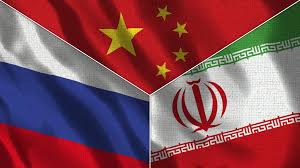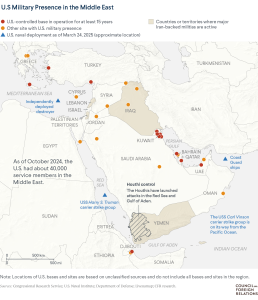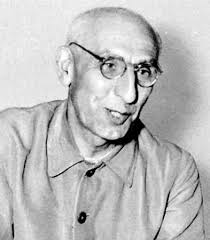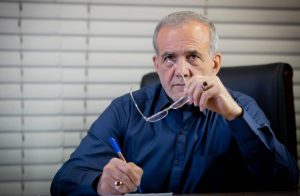Iran, Russia, and China released a joint statement on 5 June calling on the western nations to restore the 2015 nuclear deal between Tehran and Washington under the Joint Comprehensive Plan of Action (JCPOA), which the US withdrew from in 2018.
The statement was timed to coincide with a meeting of the Board of Governors of the International Atomic Energy Agency (IAEA).
“The People’s Republic of China, the Islamic Republic of Iran and the Russian Federation are convinced that it is time for Western countries to show political will to stop the ongoing cycle of escalation that has been going on for almost two years and take the necessary steps to revive the Joint Comprehensive Plan of Action. It’s still possible to do this,” read the joint Iranian–Russian–Chinese statement.
The three states have continued to support the JCPOA even though “the US illegally and unilaterally withdrew from this agreement and imposed unilateral and illegal sanctions and applied the policy of maximum pressure against Iran.”
Restoring the 2015 nuclear agreement would solve the “vast majority of issues” in Tehran’s nuclear program and would provide IAEA inspectors with adequate monitoring opportunities.
Just two days ago, the UK, France, and Germany submitted a draft resolution against Iran to the IAEA Board. The resolution, on which a vote is expected to be taken in the coming days, resembles one passed in 2022 ordering Iran to comply with the IAEA investigation into uranium traces found at undeclared nuclear sites in the country.
“[The Board] Calls on Iran to provide sufficient cooperation with the Agency and take the essential and urgent actions as decided by the Board in its November 2022 resolution, to resolve safeguards issues which remain outstanding despite numerous interactions with the Agency since 2019,” the draft reads.
Since then, the number of sites being investigated has dropped from three to two. The IAEA is demanding an explanation for traces of uranium found at those sites, which it refers to as “outstanding safeguards issues.”
Tehran has enriched uranium to up to 60 percent purity, which the west warns is close to the 90 percent needed to make a nuclear weapon. Tehran, a signatory of the Non-Proliferation of Nuclear Weapons Treaty (NPT) effective since 1970, maintains that its nuclear program is entirely peaceful.
“We are currently in the phase of reduction of commitments [to the JCPOA],” Mohammed Eslami, head of the Atomic Energy Agency of Iran (AEAI), said on 5 June in reaction to Washington’s withdrawal from the 2015 deal.
Eslami said Tehran has been complying with a parliamentary law on “strategic action” to lift sanctions against Iran. He said that since the parties to the JCPOA failed to honor their commitments, Iran should reduce its own commitments.
“We obey the [parliamentary law on] strategic action for the removal of sanctions when it comes to the JCPOA. Iran’s nuclear activities under the strategic action are within the framework of the [IAEA] Safeguards,” Eslami added.
In 2018, the administration of former US president Donald Trump withdrew from a 2015 deal reached between Tehran and Washington under the framework of the JCPOA, reimposing harsh economic sanctions against the Islamic Republic.
Tehran and Washington were close to reaching a new agreement in August 2022 before nuclear talks stalled once again following the start of an extensive Israeli lobbying campaign aimed at preventing a deal from going through.





